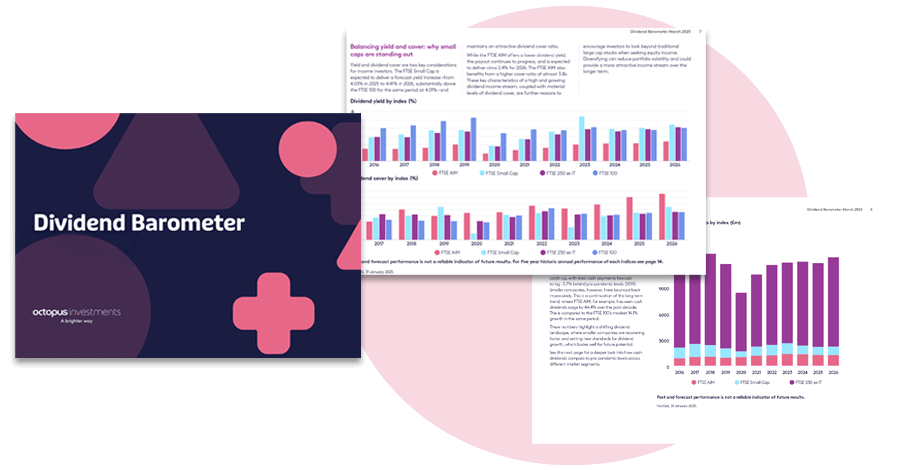WhitepaperBusiness ReliefInheritance tax
What is a power of attorney?
Power of attorney
Last updated: 5 January 2026
What is a power of attorney?
A power of attorney (POA) grants a trusted individual the authority to act on behalf of another person in specified or all legal, financial, or medical matters. This authorisation allows the designated person to make decisions regarding the principal’s property, finances, and healthcare, particularly if the principal becomes unable to make these decisions independently.
What is a lasting power of attorney?
What is a lasting power of attorney?
A lasting power of attorney (LPA) is a legal document that lets individuals (the ‘donor’) appoint one or more people (known as ‘attorneys’) to help you make decisions or to make decisions on your behalf.
Not having an LPA in place can have serious implications should someone lose capacity. Their loved ones would need to apply to the Court of Protection to become a ‘deputy’ in order to be able to make decisions for them. This can be a long and expensive process.
There are two types of LPA:
- health and welfare (medical care, washing, dressing, eating, moving to care home).
- property and financial affairs (managing bank accounts, paying bills, collecting benefits pensions, selling homes).
The POA should always consult the donor before decisions are made as much as is possible. As such, if the donor still has capacity, then it is their decision to make. If the donor has fluctuating capacity, you will want to consult them at the best possible time and make sure they understand the request.
Where the donor has lost mental capacity, then decisions will rest with the POA, who must always act in the best interests and wishes of the donor.
Ask Octopus
Do you have a question about inheritance tax and estate planning?
Use our free helpdesk to Ask Octopus

What is an enduring power of attorney?
What is an enduring power of attorney?
With an enduring power of attorney (EPA), the POA responsibilities can include making financial decisions such as, money and bills, bank and building society accounts, property and investments pensions and benefits.
Only EPAs signed before October 1 2007 can still be used. After that date donors had to make an LPA.
The EPA must be registered as soon as the donor starts to lose mental capacity.
What is the difference between enduring power of attorney and lasting power of attorney?
What is the difference between enduring power of attorney and lasting power of attorney?
An LPA should be registered immediately, whereas an EPA is registered after the donor has lost capacity. It follows that with an LPA an individual can authorise their POA to make decisions even if you have not lost capacity.
Who can override a power of attorney?
Who can override a power of attorney?
In the UK, a POA can be overridden by the donor, the Office of the Public Guardian (OPG), or the Court of Protection:
- The donor: If the donor has mental capacity, they can revoke the POA by submitting a written statement, known as a “partial deed of revocation,” to the OPG.
- The OPG: The OPG has the authority to investigate and cancel a POA if necessary. Family members or other LPAs can contact the OPG if they disagree with the POA’s actions or decisions.
- The Court of Protection: This court can intervene when required.
Additionally, individuals with a legitimate interest in the donor’s welfare and financial affairs may challenge a POA. This includes situations where there are suspicions that the POA was imposed on the donor or if it is believed not to be in the donor’s best interest.
The delegation of discretionary decisions under a power of attorney
The delegation of discretionary decisions under a power of attorney
The Law Society recommends that POAs are drafted widely, so as to include the ability for the attorney to invest the donor’s money with a discretionary fund manager. It is possible that some donors would have given their attorneys narrower investment powers, but this goes against the Law Society’s guidance.
An attorney choosing to invest in a specific, targeted investment where investment decisions rest with the manager to make, within a defined mandate, could be viewed as being within the scope of the overall agency agreement even where the ability to pass discretionary investment decisions to a third party are not specifically given to the attorney.
The adviser has to be comfortable with their advice (as always) and, if in doubt, should confirm their firm’s position with their own compliance department.
Additionally, the OPG changed its guidance in 2022, regarding the ability for a POA to delegate investment decisions, for example, to a discretionary investment manager.
Previously the OPG guidance suggested that, to the extent the POA terms do not include the ability to delegate investment decisions, the attorney may need to apply to the Court of Protection to change the POA terms.
Their guidance changed and the OPG removed the wording in their guidance that stated that you had to include the delegation of discretionary management in the LPA The OPG’s guidance shows the wording regarding the delegation of investment management is no longer included.
The change in guidance suggests an acknowledgement by the OPG that the law allows POAs to delegate investment management to a discretionary investment manager without the retrospective approval of the Court of Protection, even where the terms of the POA LPA itself is silent on the point.
The capacity to change a will under a power of attorney
The capacity to change a will under a power of attorney
If the protected person has lost capacity, in order to change the will, the POA would need to go to the Court of Protection to request an amendment of the will.
An alternative could be to wait until the protected person has passed away. At which point the POA comes to an end and a deed of variation can be undertaken to amend the will to restructure the assets, as necessary.
The deed of variation can be made up to two years after the death of the relevant individual. The beneficiaries who would be giving up assets as a result of the amendment would have to agree.
Gifting under a power of attorney
Gifting under a power of attorney
The Mental Capacity Act 2005 (MCA or ‘the Act’) only allows you to give a gift in certain circumstances. These permitted gifts typically do not have to request approval from the Court of Protection (COP). These types of gifts are occasional gifts of small amounts on customary occasions or seasonal in nature for example, births, birthdays, weddings or civil partnerships, Christmas, Eid, Diwali, Hanukkah and Chinese New Year, to anyone connected to the person. But they must reasonable, affordable and in the person’s best interests.
Gifts not categorised as ‘permitted gifts’ would typically need to seek COP approval.
Business Relief-qualifying investments under a power of attorney
Business Relief-qualifying investments under a power of attorney
There is no restriction on a POA in relation to investing in Business Relief-qualifying asset on behalf of a protected person (even if the POA is a beneficiary). The key point is that the POA needs to be comfortable that they are acting in the best interest of the protected person, based on the terms of the specific POA, situation and requirements.
This goes for any action the POA undertakes (Business Relief-qualifying investments or otherwise). In terms of Business Relief-qualifying investments, this could include, among other things, consideration if the protected person had undertaken inheritance tax planning before or expressed an interest to do so.
Please bear in mind that investments that qualify for Business Relief put an investor’s capital at risk and won’t be right for everyone. Tax treatment depends on individual circumstances which could change in the future.
Tax legislation, rates and allowances are correct at time of publishing for the tax year 6 April 2024 – 5 April 2025.
For deaths before 6 April 2026, Business Relief investments (AIM or unquoted shares) held for two years attracts 100% inheritance tax (IHT) relief to an unlimited value.
From 6 April 2026, 100% IHT relief will continue for the first £2.5 million of combined agricultural and unquoted Business Relief qualifying property (e.g. sole traders, partnerships, unquoted companies). Amounts over £2.5 million will attract 50% IHT relief. Business Relief qualifying companies listed on the Alternative Investment Market (AIM), will attract 50% IHT relief irrespective of the investment amount.
Related resources
Related resources
Business Relief explained
Investments that qualify for BR can be passed on free from inheritance tax upon the death of the investor, provided the shares have been owned for at least two years at that time.
IHT Toolkit
You can educate and nurture clients with these resources when having conversations about estate planning using this handy Toolkit.
Estate planning for clients who have a power of attorney in place
Barbara has a power of attorney in place and an estate facing an inheritance tax liability.






